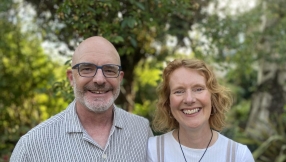WCC 9th Assembly to Affirm Alternative Globalisation
|TOP|The six-page document, entitled “AGAPE – A call to love and action”, calls upon churches around the world “to act together for transformation of economic injustice”.
Participants at the Assembly, to take place in Porto Alegre, Brazil, from the 14th to 23rd February 2006, will be invited to recommit themselves to work “for the eradication of poverty and inequality” and “for justice in international trade relations”.
The call, in the form of a prayer, is also “for responsible lending, unconditional debt cancellation and the control and regulation of global financial markets.”
The proposals in the Agape call build on the work already developed as a response to the WCC’s 8th Assembly in Harare in 1998 which stated that “the logic of globalisation needs to be challenged by an alternative way of life of community in diversity”.
|QUOTE|Developments since 1998 include broad consultations with churches, social movements and ecumenical bodies, notably the World Alliance of Reformed Churches, the Lutheran World Federation and the Conference of European Churches.
The proposals that stem from this process, which came to be called “AGAPE: Alternative globalisation addressing peoples and earth”, have been shared with the churches prior to this year’s Assembly.
The findings, proposals and recommendations to the churches have been brought together in a 60-page background document with the same title that was designed as a study guide for use in seminars and discussion groups.
Of particular focus in the document are the human tragedies caused by economic globalisation and transformation in accordance with the theme of the Assembly, “God in your grace, transform the world”.
|AD|It also reflects on the expectation that churches and the ecumenical family will move beyond a critique of neoliberal globalisation and go on to develop a vision of a just, compassionate and inclusive world.
According to the report, the richest 20 per cent of the population owns 83 per cent of the world’s wealth, the next 20 per cent owns 11 per cent, and the remaining 60 per cent owns just 6 per cent of the world’s wealth, creating what it dubbed a “champagne glass economy”.
The report also condemned the intolerable levels of poverty which have arisen from this economic model, particularly on theological and spiritual grounds, challenging the churches to act.
"It is hoped that this document will inspire the churches and the ecumenical family to address the complex questions around economic injustice, which is the main challenge of our times," says Rogate Mshana, WCC programme executive responsible for economic justice.













